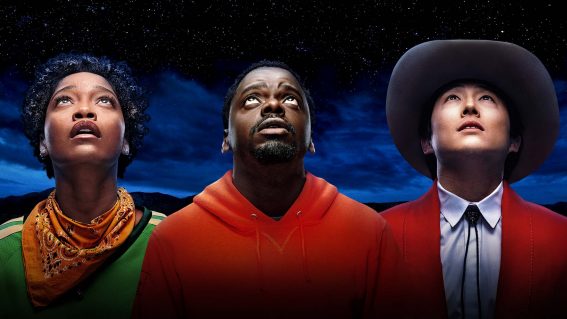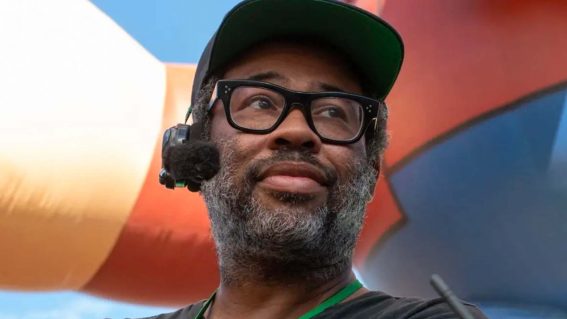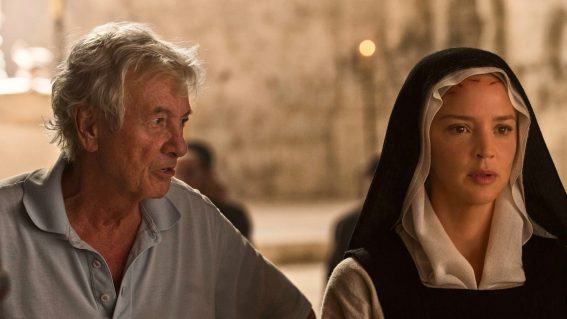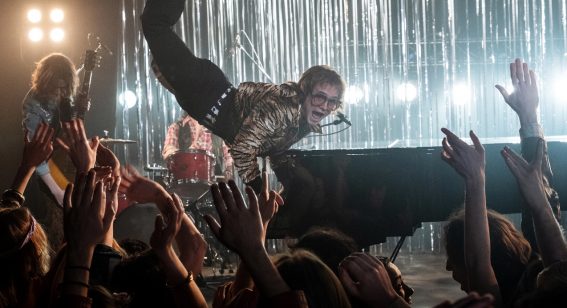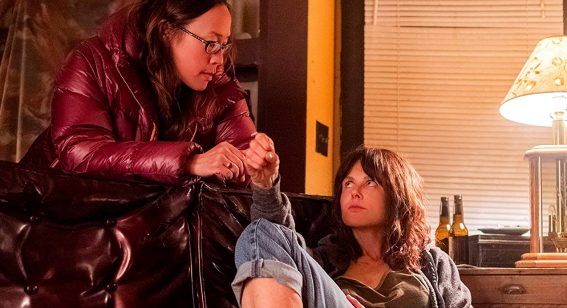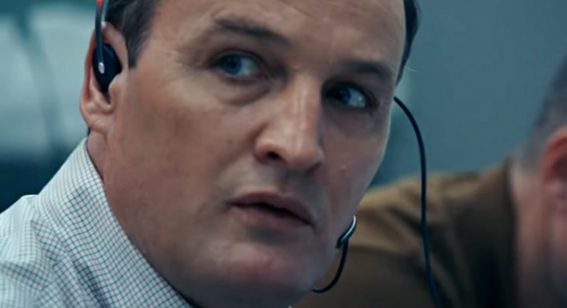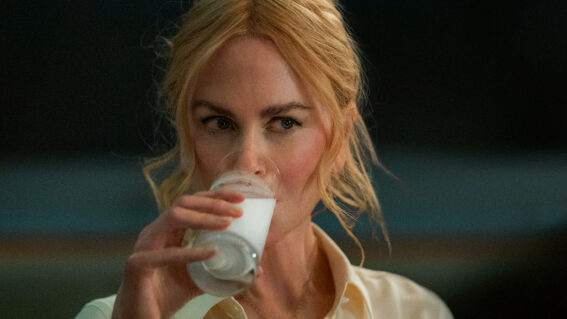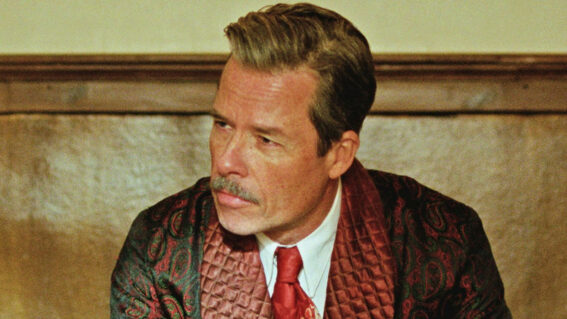Interview: ‘Baby Driver’ director Edgar Wright
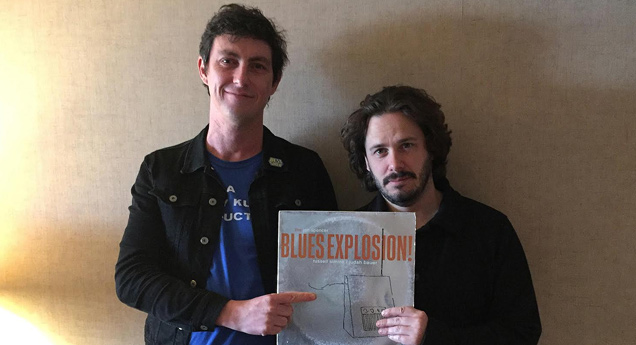
Celebrating the release of his new film, the already-successful Baby Driver, Edgar Wright returned to New Zealand where we’d previously talked The World’s End.
Read on, as he chats with Steve Newall about his hit music-drenched-car-chase-romance-action-comedy-heist movie.
FLICKS: Congratulations. It’s been a few years in the making, but you’ve had another major career milestone, which was getting back on the Doug Loves Movies podcast again.
EDGAR WRIGHT: That’s true. It’s funny, I’d done Doug Loves Movies many times. But I felt that last time I was on there we sort of peaked with being on there with Simon Pegg and Nick Frost together. And I basically felt like I love Doug’s show, but I also felt like if I’m on this too much it looks like I’ve got too much time on my hands, so I shouldn’t come back until I’ve got a new movie. And then that took four years, so that’s why. But it was great to be back.

It’s a show where you’re one of Doug’s people or you’re not one of Doug’s people. It’s for people that love movies. And you’re just such a nice fit for it. I think that Baby Driver’s a great fit for that show and that audience as well. You skipped the premiere in New York to go do the show! So what does that say about your commitment to the people that you were doing that show in front of that night?
Well, the thing is, I think I approach being a film director as if I am a cinemagoer. I try and make the movies that I want to see. And the hope is that other people want to see them too. So that’s what you’re really striving for is “I don’t make moves that I think I ought to. I make movies that I want to make.”
Something like Doug Loves Movies, doing that show is just fun because I do still consider myself a cinema fan. I’m not one of those people where – because I’ve crossed over into kind of being a part of the industry – I don’t still think of myself as a film fan, as a moviegoer, and that’s what I probably identify myself as first and foremost. So I don’t know how else to describe it.
It’s just like most of the things I’ve done so far, they all come out of a passion for film. And I think maybe, sometimes, if the movies always have a lot of elements to them – there may be more than one thing at once – is because it takes me three or four years between films, and I want to come back with something that feels like a full meal.
It’s well established that this film’s been a long time in the, maybe not in the making but in the gestating.
The slow cooking.
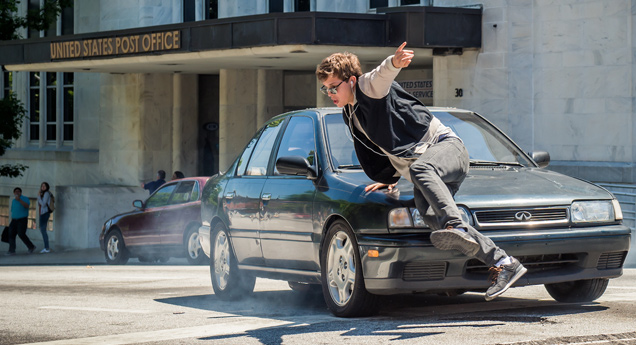
Is it any coincidence that what I guess is the most intensely Edgar Wright film comes after exiting Ant-Man? So you’ve gone from a situation where, rather than participate in someone else’s stuff, you’ve done something which has probably got more of you in it than anything that you’ve made to date.
Well, it wasn’t really planned to be that way. But it’s ironic that, I mean, so far this is going to be my highest-grossing movie that I’ve ever made.
Where are you at now? You’re at like 59.5 million I think it is today?
I think so. Something like, worldwide, it’s like 70 million, which is very nice for a new movie. I mean, Hot Fuzz actually made 80 million worldwide, so it hasn’t overtaken Hot Fuzz just yet.
High-five. [We high-five]
Thank you.
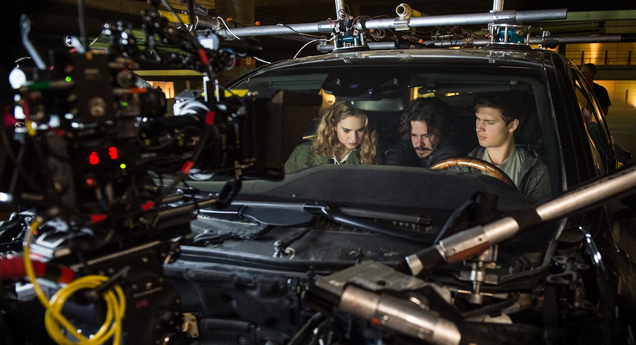
The thing I’ll say about this is that in this current climate– and this is not to take anything away from franchise movies, because listen, there’s plenty of franchise movies that I love. But I don’t think anybody out there could disagree that there’s a lot of franchise movies at the cinema. And a lot of things are a part five, or a part three, or a reboot of something, or a remake of something, or an adaptation of a brand. And sometimes those instalments can be really good. But I, like a lot of other moviegoers, want something different.
And so it really makes me sort of feel warm and fuzzy inside – not Hot Fuzz-y, warm and fuzzy. It makes me feel warm and fuzzy inside that an original movie like this is connected with a larger audience who are used to thinking that the summer means franchise movies. And, again, I’m not drawing a line in the sand, saying that all franchise movies are bad because that’s not the case. But it is something where I think there should be more variety. And I think for the sake of film history and for the future of film history, there should be more original movies. To me, that’s just a no-brainer.
I don’t want to dwell on the movie that I didn’t make, but I will say this, that when I was working on that movie, in the back of my mind I was thinking, “Well, maybe if this movie does well then I’ll have enough muscle to get Baby Driver made.” And so the very pleasant irony is that I got it made anyway. Now, it wasn’t easy. It’s not like Baby Driver just happened overnight. Pretty much the last three years I’ve been getting it going. And 18 months of that was sort of actually making the movie kind of come together and get the green light.
So the fact that it’s connected I feel extremely fortunate and grateful about. And I have to give credit to TriStar, and Sony, and MRC, and Working Title for basically getting an original movie made. Because original studio movies are important, and you want the industry to stop treating original movies like side bets. It would be a lot simpler if they just said, “For every franchise movie we make, we make an original movie too.”
Yeah, why can’t they play “one for us, one for them” as well?
Well, somebody asked me about this. I did a Q&A at the Writer’s Guild, and they said, “How do you make a commercial movie that’s also idiosyncratic?” And I said, “Well, they have that thing people say about movies,” where I don’t know, Steven Soderbergh or Guillermo del Toro say, “One for them, one for me.” Like, “one for the studio, and one for myself”. And I think the truth of it is that Baby Driver is both. Because there’s lots of things in it.
Like you said, it’s the most “Edgar Wright-y” movie. And I think that’s because a lot of my preoccupations, the things that I love, and subjects that I’m passionate about feature in the movie. But it is also a car-chase movie and a big action movie with big stars and people that you recognize. So I think one of the reasons that why it’s sort of connecting is because it’s reaching an audience that have never seen any of my other films. And there’s no need there. You don’t need to know anything about my previous work, or any other heist movie, or any other car-chase movie to enjoy Baby Driver.
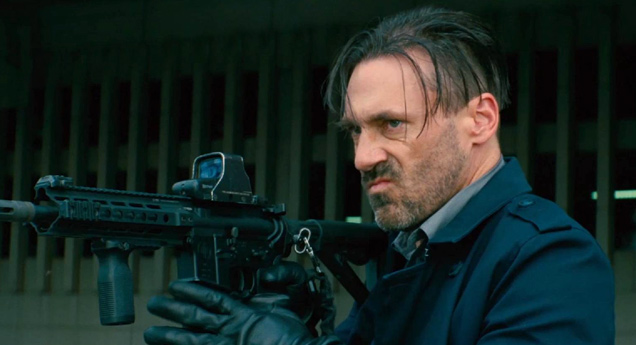
I think there’s a trajectory as well, I think, in your films. I felt, with ‘The World’s End’, that rather than mostly being commentary on movies, or referencing films, it created the strongest in-film universe that you probably had to date. And ‘Baby Driver’ is another step up in that. To me, that’s one of the reasons it works so effectively. Like you say, people don’t need to know the references, but there’s a really strong world that’s been built.
Yeah, I think that’s true. I mean, I think The World’s End was different from the previous two, Shaun of the Dead, and Hot Fuzz. They’re all personal in different ways. That was the funny thing about doing those movies, is that me and Simon could figure out ways to make films that are strangely personal. Even Hot Fuzz. It seems like, how could that possibly be a personal movie? But it’s literally about the town where I grew up. And then, Shaun of the Dead was about turning 30 and getting your life together. And The World’s End was about the death of nostalgia, the idea that it’s dangerous to keep looking back.
I guess in this one is a bit more sort of pure because it’s an action movie, and it’s about kind of a gang of robbers and their young sort of savant of a getaway driver. But it’s also a movie that’s essentially about people’s relationship with music. And music and sound is something that’s been a big part of my life, a big part of everybody’s life. Everybody has a great relationship to music. So it’s been really nice actually. Somebody wrote this thing on Twitter the other day. I don’t know who it was, it was just a fan, but it was like the best review of the movie. They said, “Baby Driver is the greatest movie I’ve ever heard.” And I was like, “Ah, well that’s such a great review.” So whoever that was, I can’t remember your name, but I love that review because that’s pretty much it, as it’s sort of like a visual movie that’s actually about sound.
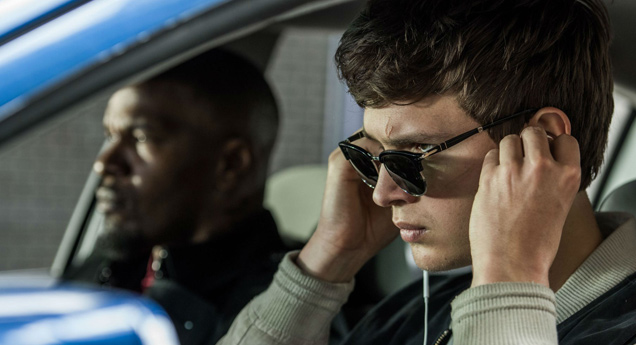
What tends to happen when people talk about their films is that the cast, they’re always the first people that they approached, and it was always a actor they always had in mind for the role. But obviously, with Ansel so critical to this film working, how difficult was it finding the right chap to do all that stuff?
I mean, certainly, when I was trying to get the film together, it was the first question I got asked, was like, “Who is going to play Baby? Who are you going to hang this entire movie on?” Because there’s not that many 20-year-old actors out there that can kind of carry a movie. So that was pretty much when I started, when we decided that we’re going to try and get Baby Driver off the ground three years ago, it was the first thing that we did. Actually, even before we had a studio backing the movie, myself, and Nira Park, and Eric Fellner – the producers – started doing casting to find Baby.
Right. You knew you were going to have to have him in your pocket.
We knew we had to find that person. And we also, when we went to a studio, we wanted to be able to say, “It’s this guy.” So I met everybody that was out there but Ansel was one of the first people I met. And even before he’d read the script, we spent an hour having coffee in Los Angeles and we just talked about music the entire time. So I had a good feeling about him. And then he came in again, and now he’d read the script, and he was blown away by the script and he was just like, “I have to play this part”. So that was a good thing, too.
He was so enthusiastic about it. He just absolutely loved the script, and loved the character, and identified with the character. So it was through a couple of auditions that we did that just really sort of sealed the deal, really. For his age, he’s a very charismatic, sort of interesting leading man, and has such kind of great camera presence, I feel.
And then what was great is surrounding him, then, with these amazing heavyweight actors who are all separately iconic, especially in terms of Spacey, and Jamie Foxx, and Jon Hamm. It almost worked in the same way as the movie is that you have this kind of young pup in this kind of room full of heavyweight professionals, and it gives a tension to the scenes. There’s several scenes in the movie where the gang are ganging up on Baby and you, as a viewer I think, are totally on his side because you want this kind of kid to somehow survive this ordeal that he’s in. And it was always in there, it was always in the script like that, but I think the casting of the actors just made that even more vivid.
Steve Newall got into the music of Baby Driver with Edgar Wright, too. Listen to Music 101 on Radio New Zealand this Saturday from 1pm, or check out the rest of the interview online next week.

